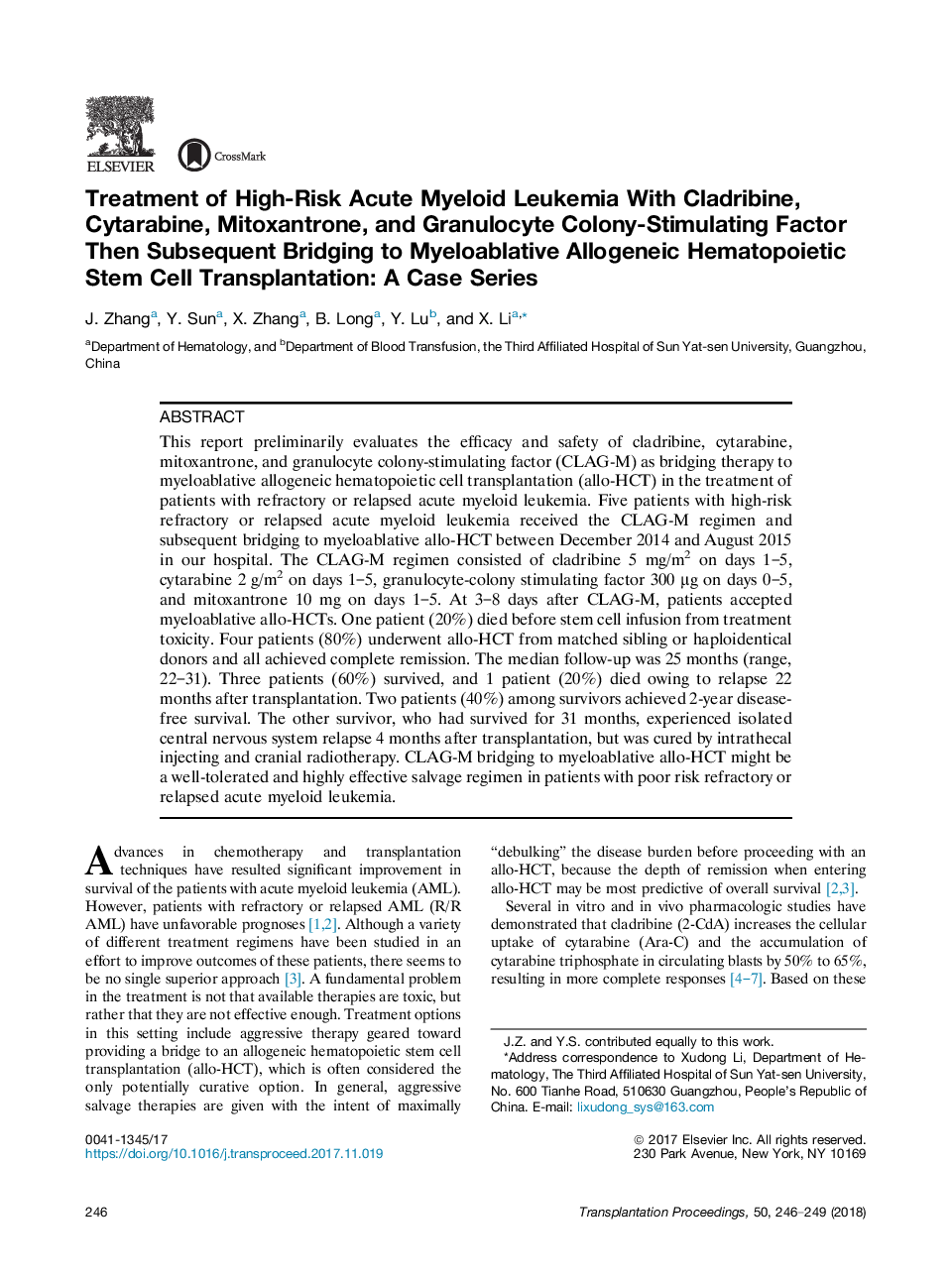| Article ID | Journal | Published Year | Pages | File Type |
|---|---|---|---|---|
| 8827442 | Transplantation Proceedings | 2018 | 4 Pages |
Abstract
This report preliminarily evaluates the efficacy and safety of cladribine, cytarabine, mitoxantrone, and granulocyte colony-stimulating factor (CLAG-M) as bridging therapy to myeloablative allogeneic hematopoietic cell transplantation (allo-HCT) in the treatment of patients with refractory or relapsed acute myeloid leukemia. Five patients with high-risk refractory or relapsed acute myeloid leukemia received the CLAG-M regimen and subsequent bridging to myeloablative allo-HCT between December 2014 and August 2015 in our hospital. The CLAG-M regimen consisted of cladribine 5 mg/m2 on days 1-5, cytarabine 2 g/m2 on days 1-5, granulocyte-colony stimulating factor 300 μg on days 0-5, and mitoxantrone 10 mg on days 1-5. At 3-8 days after CLAG-M, patients accepted myeloablative allo-HCTs. One patient (20%) died before stem cell infusion from treatment toxicity. Four patients (80%) underwent allo-HCT from matched sibling or haploidentical donors and all achieved complete remission. The median follow-up was 25 months (range, 22-31). Three patients (60%) survived, and 1 patient (20%) died owing to relapse 22 months after transplantation. Two patients (40%) among survivors achieved 2-year disease-free survival. The other survivor, who had survived for 31 months, experienced isolated central nervous system relapse 4 months after transplantation, but was cured by intrathecal injecting and cranial radiotherapy. CLAG-M bridging to myeloablative allo-HCT might be a well-tolerated and highly effective salvage regimen in patients with poor risk refractory or relapsed acute myeloid leukemia.
Related Topics
Health Sciences
Medicine and Dentistry
Surgery
Authors
J. Zhang, Y. Sun, X. Zhang, B. Long, Y. Lu, X. Li,
